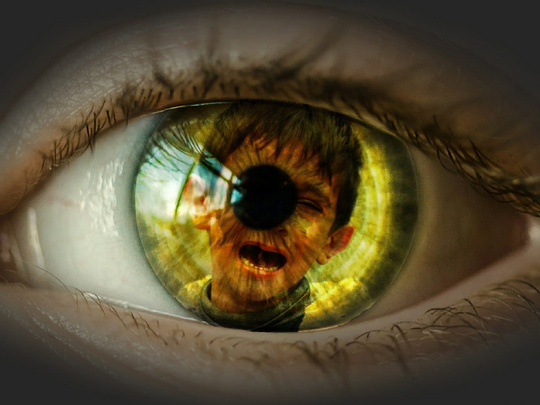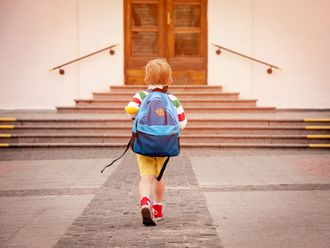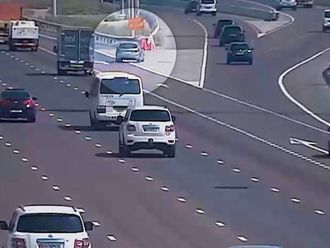
Dubai: If you are aware of a case of child abuse in the UAE, it is critical that you report it immediately to the police and child protection agencies and never share content that shows child abuse online, even if you are doing so to raise awareness.
This is the message the UAE’s authorities have highlighted as they launched a new campaign – ‘Report it, don’t share it’ – on November 20, which was also International Children’s Day.
The UAE’s Ministry of Interior represented by the Child Protection Centre, the UAE Council for Digital Wellbeing and the global technology firm Meta launched the campaign at the Fazaa Pavilion at Expo 2020 Dubai, to educate the public about the harm caused by sharing images or videos of child sexual abuse and how to report such content. The move is also aimed at protecting the dignity of children online.
To date, much of the research on why people engage with child sexual abuse materials has involved evaluations of people’s psychological makeup. However, Meta’s research looks at behavioural signals from a fixed point in time and from a snapshot of users’ life on Meta’s platforms.
Researchers evaluated 150 accounts that Meta reported to NCMEC for uploading child exploitation content between July and August of 2020 and January 2021, and found that more than 75 per cent did not exhibit malicious intent, that is, they did not intend to harm a child. Instead, these accounts appeared to share the content for other reasons, such as outrage or inappropriate humour.
The study also found that the majority of reports Meta sent to NCMEC were for the same or visually similar content. Ninety per cent of the images or videos of child sexual abuse analysed in the study were found to be copies, rather than unique or new content.
In addition, just six pieces of visually distinct media were responsible for more than half of all child-exploitative content that the company reported to NCMEC in the same period.
Based on this analysis, the company developed the campaign together with child safety partners to help reduce instances of child exploitation content being shared on Meta platforms.
“While this data indicates that the number of pieces of content does not equal the number of victims, one victim is one too many. Preventing and eradicating online child sexual exploitation and abuse requires a cross-industry approach, and Meta is committed to doing our part to protect children on and off our apps. We are taking a research-informed approach to develop effective solutions that disrupt the sharing of child exploitation material,” David Miles, Meta Head of Safety Policy, Europe, the Middle East and Africa, said.
“No matter the reason, sharing images or videos of child sexual abuse online has a devastating impact on the child depicted in that content. We are working with Meta to get a better understanding of how we can effectively disrupt sharing and prevent re-victimising children, and educate people on what they can do to report this crime,” Abdulrahman Altamimi, Director of the Child Protection Centre at the UAE’s Ministry of Interior, said.
How you can report such incidents
You can help a child by reporting child exploitation content. If a child is at risk, report it immediately. You can do so through the following platforms:
- Ministry of Interior’s Child Protection Centre Hotline – 116111
- Email to 116111@moi.gov.ae
- Submit a report via the website www.moi-cpc.ae
- Download the ‘Hemayati’ app, which is available for Apple and Android devices. The app has a reporting feature, where you can alert the authorities of cases of child abuse.
If you see images on Facebook or Instagram of a child being abused, here is how you can report it online:
- Click on the photo or video to expand it. If the profile is locked and you can't view the full-sized photo, click ‘Find support’ or ‘report photo’.
- Click ‘more’ to the right of the photo or video.
- Click ‘Find Support’ or ‘Report Photo’ for photos or ‘Report Video’ for videos.
- Select the option that best describes the issue and follow the on-screen instructions.
What the UAE’s law says
The Ministry of Interior also advised online users to not share, download, or comment on the content. In the UAE, it is a crime to possess, distribute or produce material that shows child sexual abuse, regardless of the intent. This material could be in any form - images, videos or text. Members of the public will not be asked to provide a copy of the content in any report submitted to Meta, the Ministry of Interior added.








